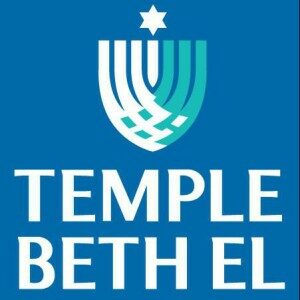WE CAN ALL BE SHEPHERDS: WHAT MAKES A JEWISH LEADER?
The Torah offers abundant lessons for leadership for today. As we turn the scroll through the opening chapters of Genesis and later into Exodus, we see how Noah, Abraham, and Moses each face the challenge of corruption in their day and respond in different ways.
In this week’s parsahah, we see Noah as a righteous man but in a limited way. He worried only about himself and his family. He didn’t go out of his way to educate and mentor his fellow citizens. If they approached him and asked, “Why are you building this massive ark”? He would respond “God is bringing a great flood and if you don’t repent, you will die”. It appears Noah cared primarily about the spiritual and physical well being of his inner circle.
Next week, Abraham will come on the scene and expand our vision for what leadership can be. Abraham was more capable in spreading wisdom about God; however, Abraham tried to transform everyone to be Tzaddikim – righteous and pious. Abraham eventually gave up and let them burn. Should Abraham have done more to save Sodom and Gomorrah? This is a difficult question to answer. Abraham built strong faith by welcoming people and inspiring them and he argued with God to save the citizens of these two cities; however, he did not try to compel them to change. (Genesis 18: 16-33).
Then along came Moses. He was a different breed. He was a true Jewish shepherd who cared for his entire flock with all his heart and all his soul. So, when the Israelites sinned and built the Golden Calf, Moses interceded on their behalf and begged God for leniency. He boldly told God that if God could not forgive the Israelites then God should delete his name from the Torah. Moses was not simple-minded nor unaware of his flock’s weaknesses. He knew that among Jews there were some that intentionally instigated the absurd idea of a Golden Calf; however, Moses was a leader and he cared for his flock no matter what.
What does this all mean for Temple Beth El?
True Jewish leaders are shepherds. In the words of Henry Kissinger, “The task of the leader is to get his people from where they are to where they have not been.” Shepherds guide, tend, direct, and redirect. They are not perfect. They make mistakes. They constantly adjust and work to improve. They do not only associate with their inner circle. They reach out to everyone – every Jewish person, no matter their background, affiliation or level of engagement. They engage across committees, groups, and generations.
Although new rabbinic leadership began over a year ago, we are still in transition. As our President, Ginny Rosenberg, has shared “We are in the “to” of “strength to strength.” We continue to experience great change and as leaders –participants in our own Judaism – we all must be the shepherds. The Talmud teaches us “when the shepherd is lost, so are the sheep. “
In a previous Community of Leaders meeting, I shared a similar message and ended with a prayer asking God to bless us as shepherds with the ability to lead our fellow congregants through transition –to turn confusion into clarity, uncertainty into understanding, ambiguity into agility, and individual committees and groups into a collaborative community of leaders. Today, I expand this prayer to include all congregants as we are all sheep and can choose to also be shepherds.




